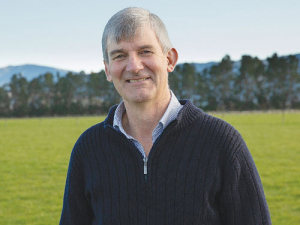Alliance Group faces crucial vote on Dawn Meats deal
The future of the Alliance Group is “pretty dark” if the proposed Dawn Meats deal does not go through, says board chair Mark Wynne.
 Alliance chair Murray Taggart says following the company's annual returns it is now in a position to repay the remaining balance of the wage subsidy.
Alliance chair Murray Taggart says following the company's annual returns it is now in a position to repay the remaining balance of the wage subsidy.
After being dogged by claims about its entitlement to the wage subsidy, the country’s largest meat processor will now fully pay it back.
Just prior to Christmas, the Alliance Group announced that it “had chosen to return the balance of the wage subsidy to the Ministry of Social Development (MSD).”
The company had already repaid $21 million of the $34m wage subsidy it claimed during the Covid lockdown and said it will now return the balance.
“From the outset, Alliance has been clear we would only use the wage subsidy in the way it was intended by government and our previous re-payments reflect this commitment,” chair Murray Taggart explained.
“Following the filing of our company accounts last month, the Alliance board believes the co-operative is in a position to repay the remaining balance. We acknowledge the support and certainty the Government provided to help us keep many of our people in jobs.”
Taggart added that the company had retained $1.9 million for the Leave Support Scheme payment to employees that were required to self-isolate or were unable to work.
Alliance had been under pressure to repay the subsidy following the move by rival meat processor Silver Fern Farm to pay it back and had been facing a private prosecution by self-proclaimed professional campaigner Simon Lusk for only returning part of the $34.3 million Covid-19 wage subsidy it claimed.
In September, Lusk sought leave of the court to bring a private prosecution against the South Island meat company’s non-executive directors for Alliance’s “disgraceful” failure to completely repay the wage subsidy.
Alliance – along with other meat processors – was declared as an essential food-producing service and permitted to keep operating during New Zealand’s March-imposed Covid-19 lockdown. In September, the farmer-owned co-op said it had repaid 50% of the wage subsidy claimed. It has since then paid back another $4m, leaving it $13m short of what it claimed in total.
In November, Alliance announced an underlying profit of $27.4m for the 2019-20. However, adjusted for a one-off historical wage claim of $20 million, its annual profit was only $7.5m before tax.
At the time, Alliance chief executive David Surveyor told Rural News Lusk’s claims were unfounded and show no understanding of the process being run by the Ministry of Social Development (MSD).
“Alliance Group has always been open and upfront about the wage subsidy application, which has been widely shared with the public. We have been in ongoing constructive discussions with MSD about the application of the subsidy and stated from the outset that we would return any funds not used to pay people.”
Alliance wasn’t the only meat company to claim the wage subsidy. Silver Fern Farms was paid $43.2m and the Anzco Group got $17.3m. Several other smaller meat companies also claimed it. Silver Fern Farms repaid the subsidy in full.
Meanwhile, other large meat industry players did not claim the subsidy, including Affco, Greenlea and Hellaby.
The World Wide Sires National All Day Breeds Best Youth Camp Best All Rounder plaudit has become family affair, with 2026 Paramount Cup winner Holly Williams following in her sister Zara's footsteps.
DairyNZ is giving New Zealand farmers a unique opportunity to gain hands-on governance and leadership experience within the dairy sector.
Herd improvement company LIC has posted a 5.2% lift in half-year revenue, thanks to increasing demand for genetics.
According to the latest Fresh Produce Trend Report from United Fresh, 2026 will be a year where fruit and vegetables are shaped by cost pressures, rapid digital adoption, and a renewed focus on wellbeing at home.
The Roar is a highlight of the game hunting calendar in New Zealand, with thousands of hunters set to head for the hills to hunt male stags during March and April.
OPINION: The past few weeks have been tough on farms across the North Island: floods and storms have caused damage and disruption to families and businesses.